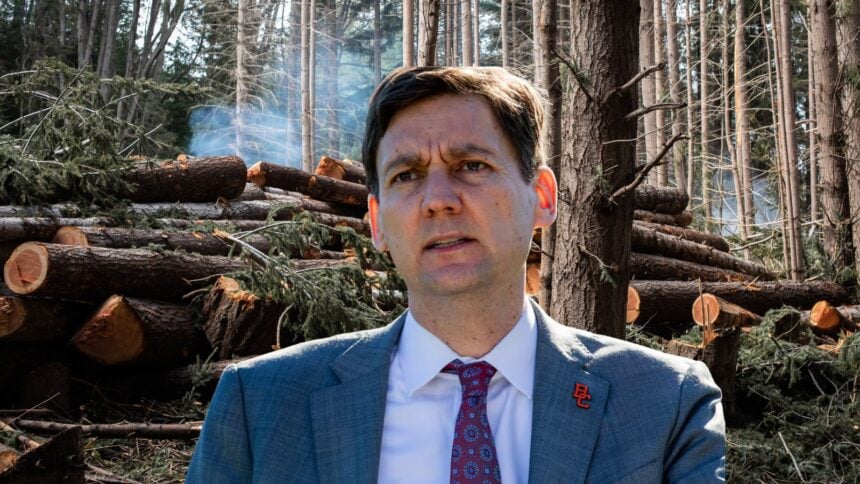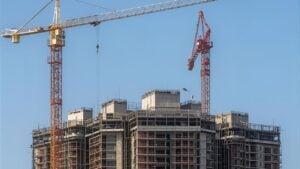British Columbia Premier David Eby is urging the federal government to move quickly to protect forestry towns after new U.S. tariffs on wood products took effect this week, raising the cost of Canadian shipments and tightening the vise on mill margins.
The added duties land as many operators already face weak prices, high stumpage, and curtailed shifts, intensifying pressure on a sector that remains one of B.C.’s largest employers outside the Lower Mainland.
The new measures stem from a White House proclamation on September 29 that set fresh national security tariffs on imported wood products effective October 14.
The policy applies a new levy of 10% on lumber and 25% on finished goods such as cabinets and furniture, on top of existing countervailing and anti-dumping duties long applied to Canadian softwood exports.
Industry groups say the stack now pushes total levies on B.C. softwood to about 45%, a level that will be difficult for smaller producers to absorb without further cutbacks or temporary closures.
The province sells the bulk of its softwood into the U.S. homebuilding market, where higher import costs tend to filter into project budgets and, ultimately, home prices.
Eby wants Ottawa to deliver targeted relief and transition tools designed for resource communities rather than broad programs that may not reach pulp and sawmill workers in time.
The premier has also pressed for a coordinated diplomatic strategy to reopen stalled softwood talks and reduce the risk of further escalation.
Additional tariffs are collected at the border, which means mills pay upfront even when market prices do not allow recovery. Larger integrated companies with diversified product lines can sometimes offset these shocks.
In B.C.’s Interior and on Vancouver Island, further curtailments would reverberate through logging contractors, trucking firms, equipment dealers, and local small businesses that support shift workers.
Ottawa has announced sector support when major facilities were at risk in the past, including supports on the table to keep the Kapuskasing mill open. It also rolled out a tariff relief program for B.C. firms earlier this year.
The province argues forestry now needs the same urgency that Ottawa has shown for steel, autos, and aerospace, given the sector’s role in northern and rural communities and in provincial exports.
The U.S. move arrives at a sensitive moment for housing on both sides of the border. American builders have struggled with labor shortages and elevated financing costs.
Additional duties on Canadian wood risk nudging construction budgets higher, which could slow starts and reduce demand for lumber later this year.
In Canada, the combination of weaker orders and higher border costs tends to feed through to log prices and shift schedules, which in turn affects contractors, municipal tax bases, and community services.
Trade lawyers note that the national security tariffs are distinct from the softwood dispute that has cycled through courts and tribunals for decades that parallel track complicates the path to relief.
Even if Canada prevails on one set of measures in a panel decision, mills could still face a separate levy until Washington changes course.
A negotiated settlement remains the most durable fix, but that would require political will in both capitals and agreement on how provincial stumpage systems interact with U.S. definitions of fair market pricing.




















